With plans for a new Thailand-European FTA, plus investment here by major firms like Mercedes-Benz and BMW, the future looks extremely buoyant
By Maxmilian Wechsler
By Maxmilian Wechsler
| THE German embassy on busy Sathorn Road is an oasis of green that’s home to a number of animals some quite large you’d hardly expect to encounter in the centre of Bangkok. Asked about these delightful inmates, the German ambassador, His Excellency Mr Rolf Peter Gottfried Schulze, is naturally very accommodating. “Within our embassy we have giant turtles, and once in a while a python will visit us. There are plenty of large monitor lizards (varans) here as well. Until recently there were three peacocks here, but unfortunately, there’s only one left. We love him dearly and consider him a friend. He communicates with us every day. We are an open society here, everyone is welcome,” explains the ambassador. He adds that the animals move freely around the adjacent Austrian and Danish embassy compounds which are separated in some parts from the German mission only by a small fence. |
After discussing the wildlife inside the compound, Mr Schulze began talking about himself.
“I just turned 60 in June and still feel strong and energetic. I am married to a lovely Dutch lady and am the father of three children, two daughters and a son. One daughter is working as a scientific adviser to a German foundation in Hanoi and the other studies law in Berlin. Our third child is with us in Bangkok. He goes to school, where he will take his International Baccalaureate Diploma next year. We are a happy family, and I have all the prerequisites to be a happy man.
“I was born in southern Germany in the Black Forest city of Karlsruhe, near the border with France. Karlsruhe is a mid-size city, but because of its location in the Black Forest it has a lot to offer. The city is famous as the seat of the two highest German tribunals the constitutional court and the highest civil court in the land.
“I never left my hometown until I was 18 years old; by then I wanted to escape as quickly as possible. I remember very well when, in 1972, a friend and I boarded the night train to Paris at midnight. I enrolled at Sorbonne University, where I studied French literature. I spent a year in France and then came back to Germany to study the classics. Again, after a couple of years, I got restless, so I went to Cambridge Downing College in England and studied there.”
After a broad education specializing in linguistics and classical literature, Mr Schulze joined the German Ministry of Foreign Affairs in 1980. He now has worked more than 30 years with the ministry and has travelled extensively in the performance of a wide variety of duties. He has been assigned to posts in Tokyo, Madrid and Beijing and for four years was the head of the Southern Caucasus and Central Asia Division desk in Berlin. “Asia keeps popping up in my professional career over and again,” said Mr Schulze, who was the German ambassador to Vietnam for four years before taking over at the embassy on Sathorn.
“I had visited Thailand a few times in the 1980s as a tourist before I arrived here on August 22, 2011, as the German ambassador. It was a very memorable moment as on this particular day I was German ambassador to two countries. In the morning, I was still behind my office desk in Hanoi and in the afternoon I landed here in Bangkok. According to the German regulations, as soon as you touch ground of your new host country, you are the ambassador there.
“Presently, as ambassador to the Kingdom of Thailand I have plenty to do. Germany has ambassadors in all ten ASEAN member states. My term is four years, so Thailand has to cope with me until 2015,” said Ambassador Schulze with a broad grin.
Link to Germany
“I am the voice and the face of Germany in Thailand. I represent the German president and the German government in Thailand, and therefore in any official dealings with the Thai government I am the link to Germany. However, I think my duties go beyond that. For one thing, I also consider it my job while here in Thailand to present a realistic picture of my country, in all its variety and richness. The intergovernmental link is one aspect of my job and the interpreter of modern-day Germany in Thailand is another.
“I represent my country in the areas of culture, civil society, social affairs and so on. The embassy’s support of German companies in Thailand is extremely important. There are 600 German firms in Thailand. Within the European Union, Germany is by far the biggest trading partner of Thailand. We are approaching a trade volume of 10 billion euro this year – this is my forecast for 2013 based on the first months of this year. There’s hardly a week that I don’t participate in the opening of a German factory here.
“Another important element of my work and of the embassy as a whole is consular work lending support to German citizens and catering to the needs of Thai citizens travelling to Germany. We are an important Schengen visa embassy and I am extremely proud of the visa section of our consular department.
“If Thai applicants have papers ready to apply for a visa to the Schengen area, within a couple of days more than 90 percent of them will get their visa without any problem whatsoever.
“So to summarize, the main areas of my work are intergovernmental contacts, public diplomacy through cultural work, support to German companies and consular and visa work.
“We have 30,000 Germans who live permanently in Thailand. They gave up their home in Germany and migrated to Thailand. This is a sizeable group and whenever I am out of the embassy, I try to meet and talk to them and listen to their needs and wishes.
“Speaking for our embassy consular department and for myself, my fellow countrymen expect us to lend them an ear and to help with their big and small problems. I am very willing and prepared to do this.”
Mr Schulze noted that Germany has honorary consuls in Chiang Mai, Pattaya and in Phuket to help with this duty. “We have 700,000 German tourists visiting Thailand every year, so there’s a constant need for consular advice to our citizens. The embassy in Bangkok cannot do it alone; we need the support and experience of the honorary consuls.”
Mr Schulze travels outside Bangkok as often as he can. “Staying in this office in Bangkok does not really give you an experience of what Thailand is like. I have come to realize that Bangkok is a great place but it is not at all representative of the country as a whole. Therefore, whenever I can, I will escape to the North, South, West or East to meet people from all walks of life, visit projects, meet my fellow countrymen and establish contacts with the local governments.”
“I just turned 60 in June and still feel strong and energetic. I am married to a lovely Dutch lady and am the father of three children, two daughters and a son. One daughter is working as a scientific adviser to a German foundation in Hanoi and the other studies law in Berlin. Our third child is with us in Bangkok. He goes to school, where he will take his International Baccalaureate Diploma next year. We are a happy family, and I have all the prerequisites to be a happy man.
“I was born in southern Germany in the Black Forest city of Karlsruhe, near the border with France. Karlsruhe is a mid-size city, but because of its location in the Black Forest it has a lot to offer. The city is famous as the seat of the two highest German tribunals the constitutional court and the highest civil court in the land.
“I never left my hometown until I was 18 years old; by then I wanted to escape as quickly as possible. I remember very well when, in 1972, a friend and I boarded the night train to Paris at midnight. I enrolled at Sorbonne University, where I studied French literature. I spent a year in France and then came back to Germany to study the classics. Again, after a couple of years, I got restless, so I went to Cambridge Downing College in England and studied there.”
After a broad education specializing in linguistics and classical literature, Mr Schulze joined the German Ministry of Foreign Affairs in 1980. He now has worked more than 30 years with the ministry and has travelled extensively in the performance of a wide variety of duties. He has been assigned to posts in Tokyo, Madrid and Beijing and for four years was the head of the Southern Caucasus and Central Asia Division desk in Berlin. “Asia keeps popping up in my professional career over and again,” said Mr Schulze, who was the German ambassador to Vietnam for four years before taking over at the embassy on Sathorn.
“I had visited Thailand a few times in the 1980s as a tourist before I arrived here on August 22, 2011, as the German ambassador. It was a very memorable moment as on this particular day I was German ambassador to two countries. In the morning, I was still behind my office desk in Hanoi and in the afternoon I landed here in Bangkok. According to the German regulations, as soon as you touch ground of your new host country, you are the ambassador there.
“Presently, as ambassador to the Kingdom of Thailand I have plenty to do. Germany has ambassadors in all ten ASEAN member states. My term is four years, so Thailand has to cope with me until 2015,” said Ambassador Schulze with a broad grin.
Link to Germany
“I am the voice and the face of Germany in Thailand. I represent the German president and the German government in Thailand, and therefore in any official dealings with the Thai government I am the link to Germany. However, I think my duties go beyond that. For one thing, I also consider it my job while here in Thailand to present a realistic picture of my country, in all its variety and richness. The intergovernmental link is one aspect of my job and the interpreter of modern-day Germany in Thailand is another.
“I represent my country in the areas of culture, civil society, social affairs and so on. The embassy’s support of German companies in Thailand is extremely important. There are 600 German firms in Thailand. Within the European Union, Germany is by far the biggest trading partner of Thailand. We are approaching a trade volume of 10 billion euro this year – this is my forecast for 2013 based on the first months of this year. There’s hardly a week that I don’t participate in the opening of a German factory here.
“Another important element of my work and of the embassy as a whole is consular work lending support to German citizens and catering to the needs of Thai citizens travelling to Germany. We are an important Schengen visa embassy and I am extremely proud of the visa section of our consular department.
“If Thai applicants have papers ready to apply for a visa to the Schengen area, within a couple of days more than 90 percent of them will get their visa without any problem whatsoever.
“So to summarize, the main areas of my work are intergovernmental contacts, public diplomacy through cultural work, support to German companies and consular and visa work.
“We have 30,000 Germans who live permanently in Thailand. They gave up their home in Germany and migrated to Thailand. This is a sizeable group and whenever I am out of the embassy, I try to meet and talk to them and listen to their needs and wishes.
“Speaking for our embassy consular department and for myself, my fellow countrymen expect us to lend them an ear and to help with their big and small problems. I am very willing and prepared to do this.”
Mr Schulze noted that Germany has honorary consuls in Chiang Mai, Pattaya and in Phuket to help with this duty. “We have 700,000 German tourists visiting Thailand every year, so there’s a constant need for consular advice to our citizens. The embassy in Bangkok cannot do it alone; we need the support and experience of the honorary consuls.”
Mr Schulze travels outside Bangkok as often as he can. “Staying in this office in Bangkok does not really give you an experience of what Thailand is like. I have come to realize that Bangkok is a great place but it is not at all representative of the country as a whole. Therefore, whenever I can, I will escape to the North, South, West or East to meet people from all walks of life, visit projects, meet my fellow countrymen and establish contacts with the local governments.”
| Bilateral relations “Last year we celebrated the 150th anniversary of diplomatic relations between Germany and Thailand,” said Mr Schulze, adding that during this jubilee year there were many events in honor of the bilateral relationship held in both countries. “We have extremely close, friendly, deep-rooted, productive relations that are beneficial to both countries, and in all these years we have never had any kind of serious problem. Germany was never a colonial power, and I dare to say that we are highly respected here and vice-versa. Thailand enjoys a very high reputation in my country.” Mr Schulze mentioned the German embassy in Bangkok is “sizeable” for this region. “We have now 101 persons; about half are Germans from headquarters and the other half are local employees. We are privileged to have excellent local staff. They are highly qualified and loyal and most of them can speak German. Without our Thai employees this embassy would not be in a position to fulfill the many tasks that we have,” said the ambassador. |
“Regarding official visits, they are constant, from both sides. On August 2012 Her Royal Highness Princess Maha Chakri Sirindhorn visited Germany. A month earlier Prime Minister Yingluck Shinawatra paid an official visit to Germany, where she met Chancellor Angela Merkel and invited her to visit Thailand.
“The German ministers of foreign affairs and finance, as well as members of parliament and other officials have visited Thailand in recent memory. There’s a stream of visitors going both directions,” said Mr Schulze, adding that supporting these visits is an important part of embassy functions. This includes making preparations for their stay here, accompanying them to official meetings, coaching and briefing them and so on. “This keeps us very busy. There’s nobody at the Bangkok airport as often as me,” the ambassador joked.
‘Thai-EU FTA is win-win’
“Regarding our trade relations, Thailand has a slight trade surplus that makes us a very attractive partner here. Germany imports a whole range of Thai products like automotive parts, gems, information technology components, hard disk drives, fishery products, agricultural and aquatic products, garments, footwear and other items. On the other hand, Germany exports to Thailand automobiles, machinery, chemical products, electronics, kitchen and other equipment.
“German firms like Mercedes-Benz and BMW in Thailand are investing in assembly plants for luxury cars and training employees, which creates value for Thailand,” Mr Schulze said.
Of the Thailand-European Union Free Trade Agreement negotiations which began in Brussels in May, Mr Schulze said: “The FTA will be a win-win scenario for both sides. This future agreement will be beneficial to both EU member states and to Thailand. We are very ambitious. We hope to get a comprehensive agreement and we hope to move ahead with the negotiations in a constructive way. It is difficult to predict the development of these negotiations, but let’s put it this way: By the end of 2015 the ASEAN Economic Community will enter into force, so if the negotiation could be concluded around that date I think it would be a big achievement.
“The FTA will lower or completely abolish import tariffs, meaning products coming in and out of Thailand will be cheaper, as they are with products coming from countries with which Thailand already enjoys FTAs with, including Japan and Korea. The FTA will increase EU capital into Thailand as well.
“Now Thai products enjoy preferential tariffs on goods exported to the EU, but Thailand has been categorized by the World Bank as a higher middle-income country (meaning that per capital income per year in Thailand is more than US$6,000). Thailand is no longer a developing country, and therefore next year will automatically graduate out of the generalized system of preferences of the EU. Unless there’s a trade agreement, Thai exports to the EU will become more expensive and less competitive. I think that this is strong incentive for the Thai government to move ahead with the FTA negotiations speedily. From our contacts, we know that the Thai government is aware and prepared to approach negotiations in a constructive spirit,” Mr Schulze mentioned.
Cultural flow
Mr Schulze said there is a constant flow of high-profile cultural attractions coming to Thailand from his country. “For example, last year the Berlin State Ballet was here with two performances of Swan Lake performed before about 2,000 visitors each night at the Thailand Culture Centre. In October we are expecting the ballet troupe from my hometown Karlsruhe in the south of Germany, again with two performances. These are just two wonderful examples.
“We have in the neighborhood of our embassy a Goethe Institute, which offers language and cultural programs and events in the fields of music, literature and so on. We have a German school in Chiang Mai and we are closely cooperating with the Swiss School in Bangkok.
“More and more Thai people would like to learn German. Recently I had a meeting with the Thai minister of education and we agreed to expand the network of Thai schools with German offered as a foreign language. German universities maintain more partnerships with Thai universities than in any other country in Southeast Asia, altogether 150 universities. This is something. Our bilateral cooperation in the fields of culture, academics and science makes us extremely productive and fruitful.”
“The German ministers of foreign affairs and finance, as well as members of parliament and other officials have visited Thailand in recent memory. There’s a stream of visitors going both directions,” said Mr Schulze, adding that supporting these visits is an important part of embassy functions. This includes making preparations for their stay here, accompanying them to official meetings, coaching and briefing them and so on. “This keeps us very busy. There’s nobody at the Bangkok airport as often as me,” the ambassador joked.
‘Thai-EU FTA is win-win’
“Regarding our trade relations, Thailand has a slight trade surplus that makes us a very attractive partner here. Germany imports a whole range of Thai products like automotive parts, gems, information technology components, hard disk drives, fishery products, agricultural and aquatic products, garments, footwear and other items. On the other hand, Germany exports to Thailand automobiles, machinery, chemical products, electronics, kitchen and other equipment.
“German firms like Mercedes-Benz and BMW in Thailand are investing in assembly plants for luxury cars and training employees, which creates value for Thailand,” Mr Schulze said.
Of the Thailand-European Union Free Trade Agreement negotiations which began in Brussels in May, Mr Schulze said: “The FTA will be a win-win scenario for both sides. This future agreement will be beneficial to both EU member states and to Thailand. We are very ambitious. We hope to get a comprehensive agreement and we hope to move ahead with the negotiations in a constructive way. It is difficult to predict the development of these negotiations, but let’s put it this way: By the end of 2015 the ASEAN Economic Community will enter into force, so if the negotiation could be concluded around that date I think it would be a big achievement.
“The FTA will lower or completely abolish import tariffs, meaning products coming in and out of Thailand will be cheaper, as they are with products coming from countries with which Thailand already enjoys FTAs with, including Japan and Korea. The FTA will increase EU capital into Thailand as well.
“Now Thai products enjoy preferential tariffs on goods exported to the EU, but Thailand has been categorized by the World Bank as a higher middle-income country (meaning that per capital income per year in Thailand is more than US$6,000). Thailand is no longer a developing country, and therefore next year will automatically graduate out of the generalized system of preferences of the EU. Unless there’s a trade agreement, Thai exports to the EU will become more expensive and less competitive. I think that this is strong incentive for the Thai government to move ahead with the FTA negotiations speedily. From our contacts, we know that the Thai government is aware and prepared to approach negotiations in a constructive spirit,” Mr Schulze mentioned.
Cultural flow
Mr Schulze said there is a constant flow of high-profile cultural attractions coming to Thailand from his country. “For example, last year the Berlin State Ballet was here with two performances of Swan Lake performed before about 2,000 visitors each night at the Thailand Culture Centre. In October we are expecting the ballet troupe from my hometown Karlsruhe in the south of Germany, again with two performances. These are just two wonderful examples.
“We have in the neighborhood of our embassy a Goethe Institute, which offers language and cultural programs and events in the fields of music, literature and so on. We have a German school in Chiang Mai and we are closely cooperating with the Swiss School in Bangkok.
“More and more Thai people would like to learn German. Recently I had a meeting with the Thai minister of education and we agreed to expand the network of Thai schools with German offered as a foreign language. German universities maintain more partnerships with Thai universities than in any other country in Southeast Asia, altogether 150 universities. This is something. Our bilateral cooperation in the fields of culture, academics and science makes us extremely productive and fruitful.”
Tourism and sport
“Thailand is a prime destination for German tourists. As I have said, last year 700,000 Germans from all walks of life visited Thailand. They visited all over the country – Chiang Mai and Chiang Rai, Bangkok, Pattaya, Hua Hin, Phuket, Koh Samui and elsewhere. Thailand is very popular with German tourists and their numbers are increasing constantly.
“As for Thais visiting Germany, we issue about 40,000 visas a year.
“There are 20,000 Thais living in Germany. You will find excellent Thai restaurants in every major German city. However, I feel that very good Thai cuisine is served also in the residence of the German ambassador in Bangkok. We have a wonderful chef. Nobody can beat him in Thai and Asian cuisine.
“Until very recently the Thai national football team had a German coach, a very close friend of mine, Winfried Schäfer. He is an excellent coach with a high international reputation. He worked with the Thai national team for two years and did an excellent job in my opinion. This shows that the links in football between our two countries are close. We are privileged that we can watch Bundesliga live on Thai television, which I do together with my son. I think that German football is very popular in Thailand. Clubs like Bayern München and Borussia Dortmund are tremendously popular here.”
Big fan of Thailand
The ambassador also mentioned with obvious sincerity that he is a big fan of Thailand, the hospitality and friendliness of the people and also of the countryside. “I get on very well with the climate and I am a big admirer of Thai food, maybe too much. Thai food is really one of the major cuisines of the world. My favourite restaurant in Bangkok is the “Blue Elephant” with its wonderful setting, exquisite menu and charming owners.
“As for German food in Thailand, there are some wonderful German restaurants. In Bangkok you have Bei Otto, which is an authentic German place, the Old German Beerhouse and also Pauline’s German Bakery which is excellent. Now I am trying to promote German wine. I will host a big event in February 2014 with the owner of the Schneider Vinyard in Rhineland-Palatinate.
“My life here is full of wonderful experiences, every week and every day, but the most memorable so far was in October 2012 when the Berlin State Ballet performed Swan Lake at the Thailand Cultural Centre in front of 2,000 enthusiastic guests. It was a really moving experience. Another unforgettable experience was in January of this year, when my close friend Kuku Uberoi organized an open air concert, performed by the Israeli state orchestra and conducted by Zubin Mehta, in front of the Royal Palace.”
Mr Schulze said that the biggest achievement of the German Embassy team over the last two years has been successfully moving forward cooperation in vocational training between Thailand and Germany, which is a top priority for both countries. “We have signed two MOUs, in October 2012 and May 2013. We established a pilot project between three German companies and the Thai Ministry of Education offering professional training according to the German curriculum. That means classroom training and on-the-job training, and after three years students receive a certificate issued by the German-Thai Chamber of Industry and Commerce here in Thailand and a job guarantee from one of the three German companies.”
“Mr Schulze confessed that he has only one big disappointment with his life in Thailand “that we can’t conduct this interview in Thai. I am trying hard to learn Thai. Three times a week in the morning I have a teacher coming to the embassy, but I am not yet as good as I would like to be. My ambition is that if you visit me again next year we can speak Thai to each other.
“Thai is a beautiful, tonal language. I consider it a big challenge to learn. I have the will to learn and have made it my objective to do so, first to speak and then to read and maybe to write as well.”
Given his determination and linguistic background, the odds are good that Mr Schulze will be fluent in Thai before long. Besides German and English, he speaks several other languages including French and Spanish. “I spent four years in Spain. My wife is Dutch, so I speak Dutch. I studied Japanese and can speak pretty well. I worked for four years in China when I was somewhat younger. Let’s say that when I was there I could speak Chinese, but this is an extremely complex language that requires daily practice which I don’t have time for now. So if you ask me if I can speak Chinese, I must say less and less.
“I am a classicist by training so I can read Latin and Greek. I love languages. Some people hate dictionaries and grammar books but I just love them.”
As for other interests away from the job, the ambassador said he is “addicted” to golf and admitted: “I am a lousy player. Nevertheless, I play whenever I have the chance. There are so many golf courses in Thailand. You have a big choice. They are all beautiful, well kept, with good management, and they all treat me well. I also try to go to the gym in the RBSC a couple of times a week and I am an avid reader of literature of all kinds.”
At the close of the interview the ambassador had high praise for Thailand and the Thai MFA: “Thailand has excellent diplomats who are on the same footing with diplomats of other major countries. Thailand can be honestly proud of their diplomatic service. They are extremely knowledgeable, helpful and we have daily contact. They are really first class.
“I want to say thank you to Thailand, to the government and the people for receiving me in such a friendly way. I am an ambassador of Germany, but I always try to take into account the interests of my host country as well.”
“Thailand is a prime destination for German tourists. As I have said, last year 700,000 Germans from all walks of life visited Thailand. They visited all over the country – Chiang Mai and Chiang Rai, Bangkok, Pattaya, Hua Hin, Phuket, Koh Samui and elsewhere. Thailand is very popular with German tourists and their numbers are increasing constantly.
“As for Thais visiting Germany, we issue about 40,000 visas a year.
“There are 20,000 Thais living in Germany. You will find excellent Thai restaurants in every major German city. However, I feel that very good Thai cuisine is served also in the residence of the German ambassador in Bangkok. We have a wonderful chef. Nobody can beat him in Thai and Asian cuisine.
“Until very recently the Thai national football team had a German coach, a very close friend of mine, Winfried Schäfer. He is an excellent coach with a high international reputation. He worked with the Thai national team for two years and did an excellent job in my opinion. This shows that the links in football between our two countries are close. We are privileged that we can watch Bundesliga live on Thai television, which I do together with my son. I think that German football is very popular in Thailand. Clubs like Bayern München and Borussia Dortmund are tremendously popular here.”
Big fan of Thailand
The ambassador also mentioned with obvious sincerity that he is a big fan of Thailand, the hospitality and friendliness of the people and also of the countryside. “I get on very well with the climate and I am a big admirer of Thai food, maybe too much. Thai food is really one of the major cuisines of the world. My favourite restaurant in Bangkok is the “Blue Elephant” with its wonderful setting, exquisite menu and charming owners.
“As for German food in Thailand, there are some wonderful German restaurants. In Bangkok you have Bei Otto, which is an authentic German place, the Old German Beerhouse and also Pauline’s German Bakery which is excellent. Now I am trying to promote German wine. I will host a big event in February 2014 with the owner of the Schneider Vinyard in Rhineland-Palatinate.
“My life here is full of wonderful experiences, every week and every day, but the most memorable so far was in October 2012 when the Berlin State Ballet performed Swan Lake at the Thailand Cultural Centre in front of 2,000 enthusiastic guests. It was a really moving experience. Another unforgettable experience was in January of this year, when my close friend Kuku Uberoi organized an open air concert, performed by the Israeli state orchestra and conducted by Zubin Mehta, in front of the Royal Palace.”
Mr Schulze said that the biggest achievement of the German Embassy team over the last two years has been successfully moving forward cooperation in vocational training between Thailand and Germany, which is a top priority for both countries. “We have signed two MOUs, in October 2012 and May 2013. We established a pilot project between three German companies and the Thai Ministry of Education offering professional training according to the German curriculum. That means classroom training and on-the-job training, and after three years students receive a certificate issued by the German-Thai Chamber of Industry and Commerce here in Thailand and a job guarantee from one of the three German companies.”
“Mr Schulze confessed that he has only one big disappointment with his life in Thailand “that we can’t conduct this interview in Thai. I am trying hard to learn Thai. Three times a week in the morning I have a teacher coming to the embassy, but I am not yet as good as I would like to be. My ambition is that if you visit me again next year we can speak Thai to each other.
“Thai is a beautiful, tonal language. I consider it a big challenge to learn. I have the will to learn and have made it my objective to do so, first to speak and then to read and maybe to write as well.”
Given his determination and linguistic background, the odds are good that Mr Schulze will be fluent in Thai before long. Besides German and English, he speaks several other languages including French and Spanish. “I spent four years in Spain. My wife is Dutch, so I speak Dutch. I studied Japanese and can speak pretty well. I worked for four years in China when I was somewhat younger. Let’s say that when I was there I could speak Chinese, but this is an extremely complex language that requires daily practice which I don’t have time for now. So if you ask me if I can speak Chinese, I must say less and less.
“I am a classicist by training so I can read Latin and Greek. I love languages. Some people hate dictionaries and grammar books but I just love them.”
As for other interests away from the job, the ambassador said he is “addicted” to golf and admitted: “I am a lousy player. Nevertheless, I play whenever I have the chance. There are so many golf courses in Thailand. You have a big choice. They are all beautiful, well kept, with good management, and they all treat me well. I also try to go to the gym in the RBSC a couple of times a week and I am an avid reader of literature of all kinds.”
At the close of the interview the ambassador had high praise for Thailand and the Thai MFA: “Thailand has excellent diplomats who are on the same footing with diplomats of other major countries. Thailand can be honestly proud of their diplomatic service. They are extremely knowledgeable, helpful and we have daily contact. They are really first class.
“I want to say thank you to Thailand, to the government and the people for receiving me in such a friendly way. I am an ambassador of Germany, but I always try to take into account the interests of my host country as well.”
Ambassador Schulze in focus
• 1972: Secondary School (Bismarck Gymnasium) in Karlsruhe
• 1973 - 1979: University studies (classics, linguistics) in Paris (Nouvelle Sorbonne), Trier, Freiburg and Cambridge (Downing College)
• 1980 - 1982: Attaché, Foreign Office, Bonn
• 1982 - 1985: German Embassy Port-of-Spain: Desk officer, press department
• 1985 - 1989: German Embassy Tokyo: Desk officer, political department
• 1989 - 1992: Foreign Office: Desk officer in the political department
• 1992 - 1995: German Embassy Madrid: Head of the press department
• 1995 - 1999: Foreign Office: Deputy Head of Division (political department)
• 1999 - 2003: German Embassy Beijing: Head of the political department
• 2003 - 2007: Foreign Office: Head of Southern Caucasus and Central Asia Division
• 2007-2011: Ambassador in Hanoi
• August 2011: Ambassador in Bangkok
• 1972: Secondary School (Bismarck Gymnasium) in Karlsruhe
• 1973 - 1979: University studies (classics, linguistics) in Paris (Nouvelle Sorbonne), Trier, Freiburg and Cambridge (Downing College)
• 1980 - 1982: Attaché, Foreign Office, Bonn
• 1982 - 1985: German Embassy Port-of-Spain: Desk officer, press department
• 1985 - 1989: German Embassy Tokyo: Desk officer, political department
• 1989 - 1992: Foreign Office: Desk officer in the political department
• 1992 - 1995: German Embassy Madrid: Head of the press department
• 1995 - 1999: Foreign Office: Deputy Head of Division (political department)
• 1999 - 2003: German Embassy Beijing: Head of the political department
• 2003 - 2007: Foreign Office: Head of Southern Caucasus and Central Asia Division
• 2007-2011: Ambassador in Hanoi
• August 2011: Ambassador in Bangkok

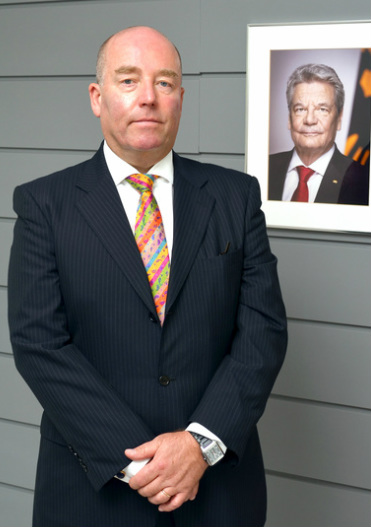
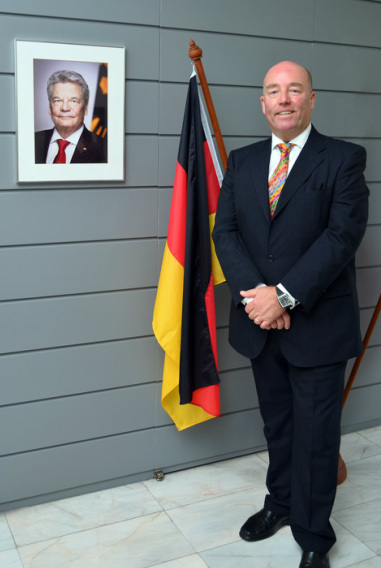
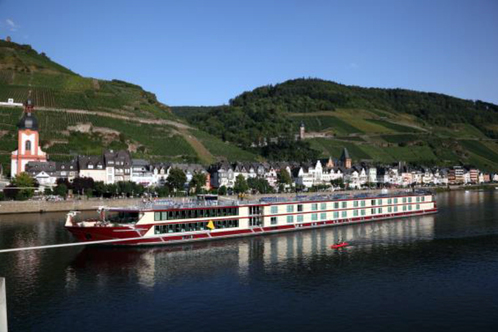
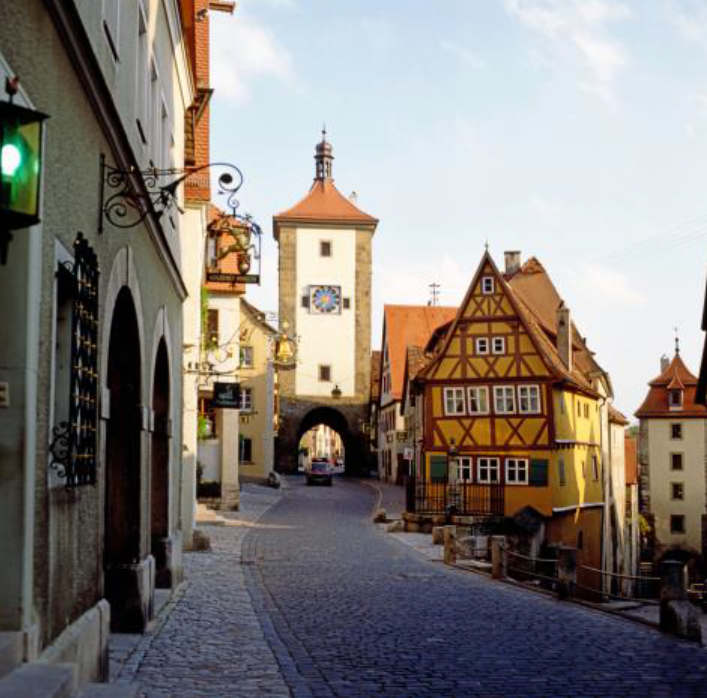
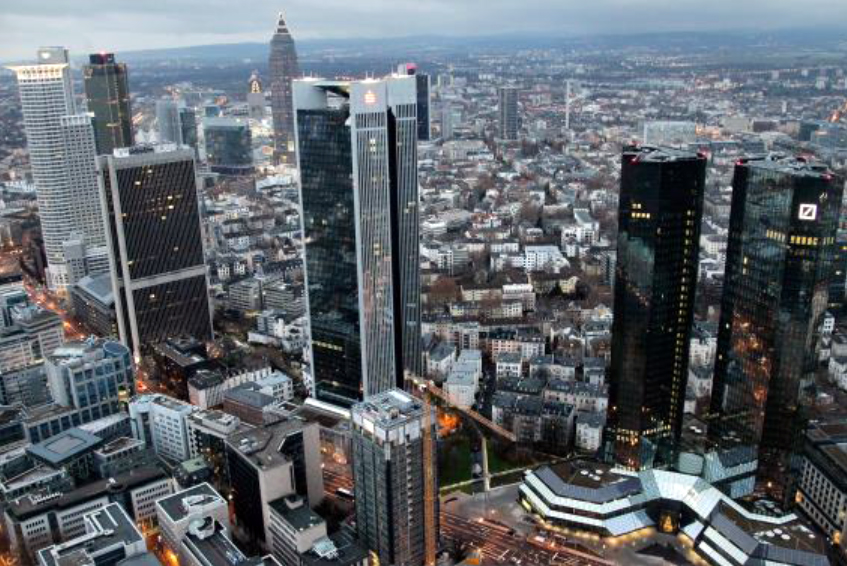
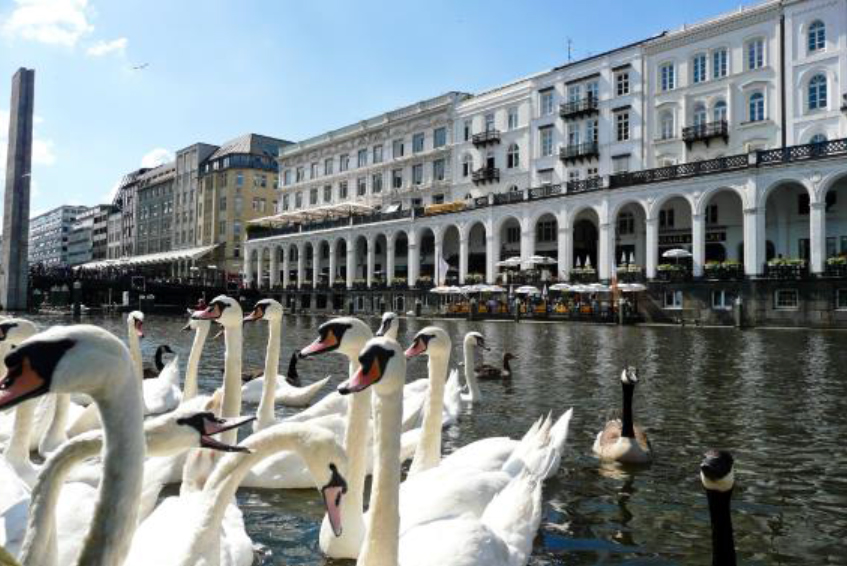
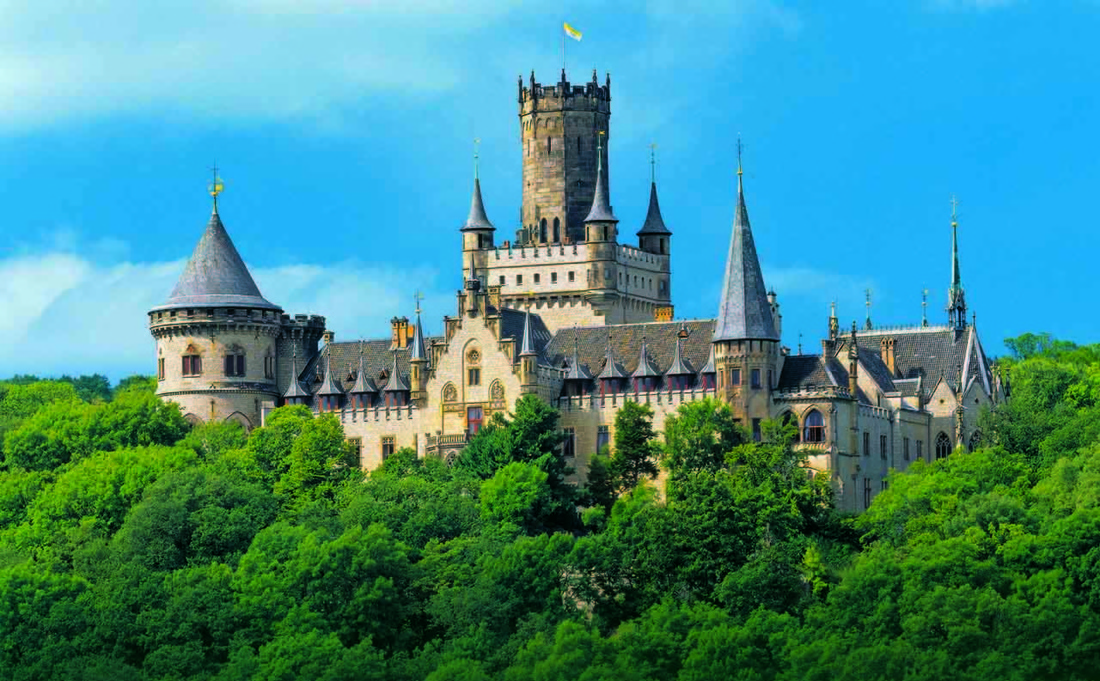
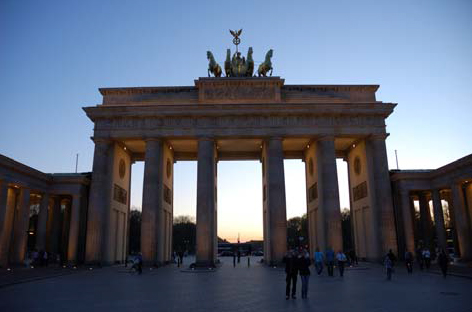
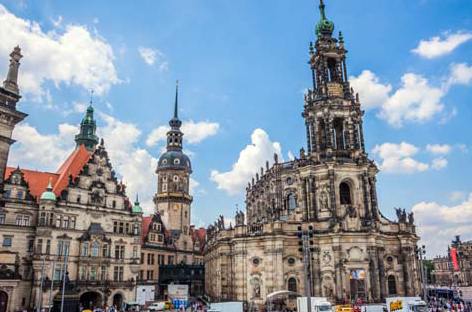
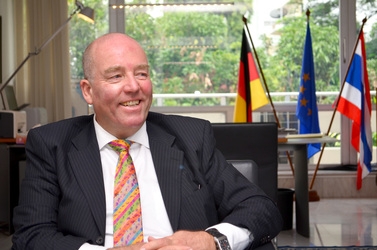
 RSS Feed
RSS Feed
















